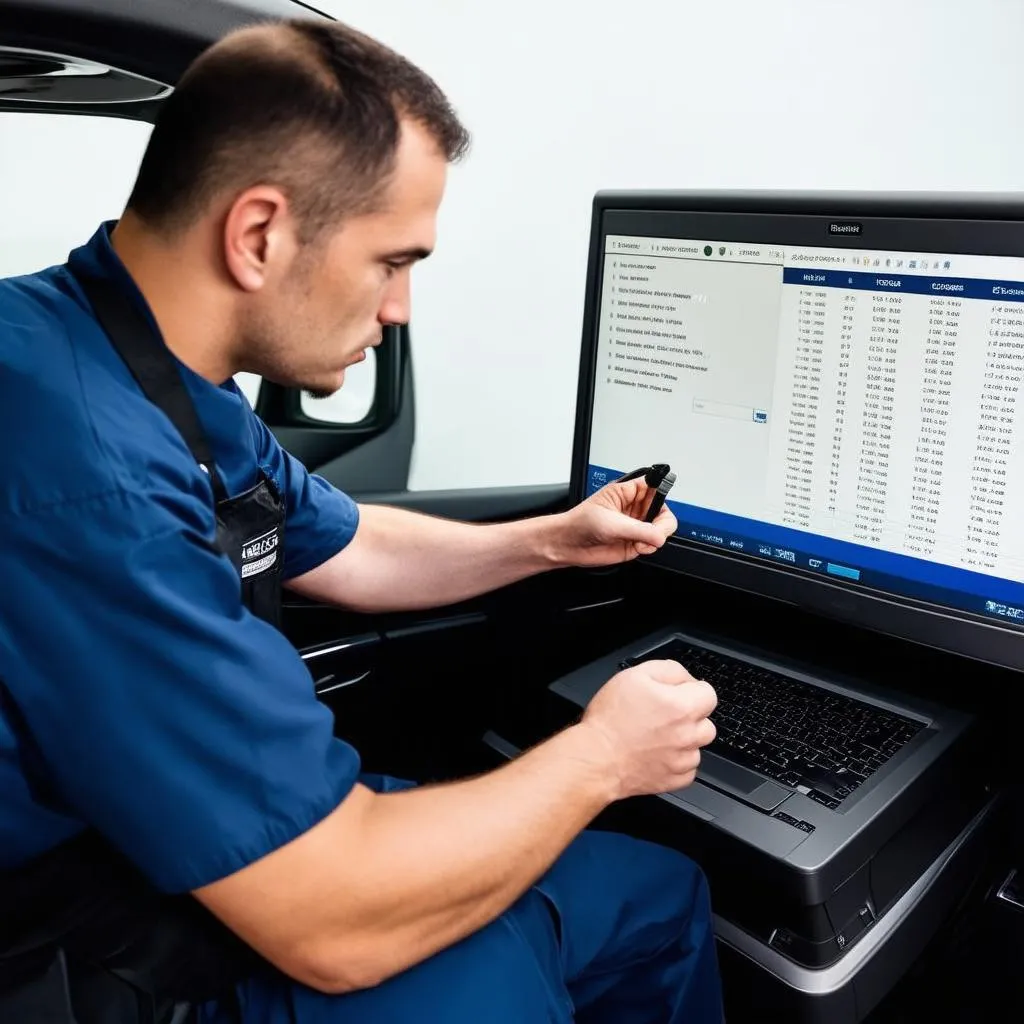Have you ever wondered if you can really trust the odometer reading on your car? Or maybe you’re curious about how to reset the odometer after a repair or replacement? These questions lead us to the fascinating world of Obd Odometer, a topic that can be both intriguing and confusing. Join us as we delve into the depths of this automotive mystery, unraveling the secrets of reading and adjusting mileage through your car’s OBD port.
What is OBD Odometer?
OBD, which stands for On-Board Diagnostics, is a standardized system that allows mechanics to communicate with your car’s computer. The OBD port, located usually under your dashboard, serves as the gateway to a wealth of data about your vehicle’s performance. This includes information about your car’s mileage, which is stored in the Electronic Control Unit (ECU).
Now, the term “OBD odometer” refers to the capability of certain diagnostic tools or scanners to access and manipulate the mileage information stored within the ECU. It’s important to note that accessing and manipulating this data can have serious legal implications, as tampering with your odometer is illegal in many countries.
Why is OBD Odometer Important?
The OBD odometer is crucial for various reasons, both legitimate and illegitimate:
Legitimate Uses:
- Accurate Mileage Readings: When used correctly, OBD odometer tools can provide a more accurate reading of your car’s mileage than the odometer itself. This is useful for mechanics who need to verify the mileage during repairs or maintenance.
- Repair and Replacement: After a major repair or replacement of parts that affect mileage, such as a new engine or transmission, mechanics might need to adjust the odometer to reflect the actual mileage of the vehicle.
Illegitimate Uses:
- Odometer Fraud: Unfortunately, OBD odometer tools can also be used for illegal purposes, such as “rolling back” the odometer to make a vehicle appear newer than it actually is. This is a serious crime that can lead to substantial fines and even imprisonment.
The Ethical Dilemma
The use of OBD odometer tools raises ethical concerns. While they have legitimate applications in car maintenance and repair, their potential for fraud makes them a double-edged sword. The ethical implications of altering odometer readings are significant, and it’s crucial to understand the legal consequences associated with such actions.
 Odometer Fraud
Odometer Fraud
How to Use OBD Odometer Tools Safely and Legally
If you are considering using OBD odometer tools, it’s crucial to ensure you do so legally and ethically. Here are some essential points to remember:
- Check Your Local Laws: Before using any OBD odometer tool, familiarize yourself with the laws in your jurisdiction regarding odometer tampering.
- Consult a Professional Mechanic: If you need to adjust the odometer due to a repair or replacement, seek the assistance of a reputable mechanic. They will be able to perform the necessary adjustments legally and ethically.
FAQ about OBD Odometer
Q: Can I use an OBD2 scanner to read my odometer?
A: Some OBD2 scanners can read odometer data, but not all of them. Whether or not a specific scanner can read your odometer depends on the make and model of your car and the capabilities of the scanner itself.
Q: Can I use an OBD2 scanner to reset my odometer?
A: While some OBD2 scanners might claim to be able to reset your odometer, using them for this purpose is highly risky and illegal in most cases.
Q: What are the legal consequences of altering the odometer reading?
A: Tampering with an odometer is a serious crime that can result in hefty fines, imprisonment, and a permanent record on your vehicle’s history.
Q: Is it possible to detect odometer fraud?
A: Yes, there are various methods to detect odometer fraud, including checking vehicle history reports, inspecting wear and tear on the vehicle, and comparing mileage readings with service records.
 Checking Odometer History
Checking Odometer History
The Importance of Transparency and Trust
The automotive industry thrives on transparency and trust. When it comes to mileage, honesty is paramount. When buying or selling a vehicle, it’s essential to ensure the odometer reading is accurate and reflects the actual mileage of the car. This fosters trust between buyers and sellers and promotes a healthy and ethical market.
Conclusion
Understanding OBD odometer tools is crucial in today’s automotive landscape. While they offer legitimate applications in maintenance and repair, their potential for fraud necessitates a cautious and ethical approach. Remember to respect the law, seek professional guidance, and always prioritize transparency and trust in your automotive dealings.
We hope this article has provided you with valuable information about OBD odometer. If you have any further questions or require assistance with your car’s diagnostics, don’t hesitate to reach out to our team of automotive experts. We’re available 24/7 to support your automotive needs.
Whatsapp: +84767531508
 TechCarUSA
TechCarUSA
For more information on related topics, check out these articles:
- Audi C7 A6 Odometer Correction OBD
- Digiprog 3 V4.94 OBD
- Does OBD-II Odometer Code?
- Does OBD-II Odometer?
- OBD Scanner Launch
We encourage you to share your thoughts and comments below. We’re always eager to hear from you!
